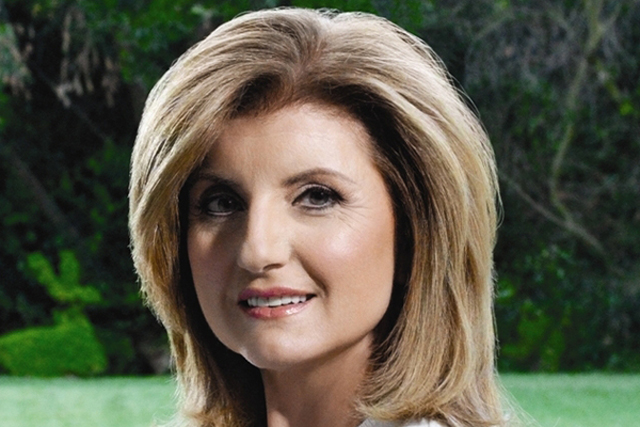My wake-up call. On the morning of 6 April, 2007, I was lying on the floor of my home office in a pool of blood. On my way down, my head had hit the corner of my desk, cutting my eye and breaking my cheekbone. I had collapsed from exhaustion and lack of sleep. In the wake of my collapse, I found myself going from doctor to doctor, from brain MRI to CAT scan to echocardiogram, to find out whether there was any underlying medical problem beyond exhaustion. There wasn’t, but doctors’ waiting rooms, it turns out, were good places for me to ask myself a lot of questions about the kind of life I was living.
Definitions of success. We founded The Huffington Post in 2005, and two years in we were growing at an incredible pace. I was on the cover of magazines and had been chosen by Time as one of the world’s 100 most influential people. But after my fall, I had to ask myself, was this what success looked like? Was this the life I wanted? I was working 18 hours a day, seven days a week, trying to build a business, expand our coverage, and bring in investors. But my life, I realised, was out of control. In terms of the traditional measures of success, which focus on money and power, I was very successful. But I was not living a successful life by any sane definition of success. I knew something had to radically change. I could not go on that way.
What is a good life? It’s a question that has been asked by philosophers going back to the Ancient Greeks. But somewhere along the line, we abandoned the question and shifted our attention to how much money we can make, how big a house we can buy and how high we can climb up the career ladder. Those are legitimate questions, particularly at a time when women are still attempting to gain an equal seat at the table. But, as I painfully discovered, they are far from the only questions that matter in creating a successful life.
When I first heard about mindfulness, I was confused. My mind was already full enough, I thought – I needed to empty it, not focus on it. My conception of the mind was sort of like the household junk drawer – just keep cramming things in and hope it doesn’t jam. Then I read Jon Kabat-Zinn’s writings on mindfulness and it all made sense. "In Asian languages," he wrote, "the word for ‘mind’ and the word for ‘heart’ are the same word."
We are operating under a cultural delusion. One of the primary obstacles keeping many businesses from adopting more sane and sustainable metrics of success is the stubborn – and dangerously wrongheaded – myth that there is a trade-off between high performance at work and taking care of ourselves. This couldn’t be less true.
If we look at the Western workplace today, we see two very different and competing worlds. In one, we see a clear manifestation of burn-out disorder: a business culture single-mindedly obsessed with quarterly earnings reports, maximising short-term profits and beating growth expectations. In the other world, we see an increasing recognition of the effects workplace stress can have on the wellbeing of employees – and on a company’s bottom line. There is growing evidence that the long-term health of a company’s bottom line and the health of its employees are, in fact, very much aligned, and that when we treat them as separate, we pay a heavy price, both personally and collectively.
Now we’re at a tipping point. This has been the year when meditation and mindfulness finally stopped being seen as vaguely flaky, vaguely new age-y, definitely California, and fully entered the mainstream. It was also the year of chief executives coming out – not as being gay, but as being meditators.
Looking after our financial capital is not enough. We need to do everything we can to protect and nurture our human capital.
Our hyperconnectedness is the snake lurking in our digital Garden of Eden. One of the things that makes it harder and harder to connect with our wisdom is our increasing dependence on technology. Personally, I make sure I have my iPhone and BlackBerrys (yes, plural) charging far, far away from my bed, to help me avoid the middle-of-the-night temptation to check the latest news or emails.
Since my wake-up call, I’ve been living my life and career in a completely different way. Suddenly, I’m living out one of my favourite quotations, by Brian Andreas: "Everything changed the day she figured out there was exactly enough time for the important things in her life."
This article first appeared on


